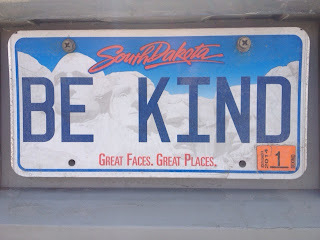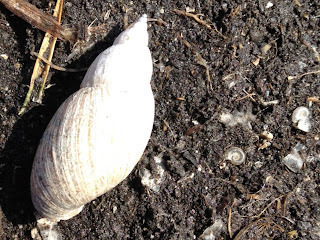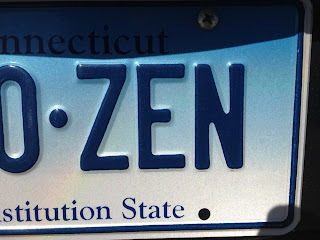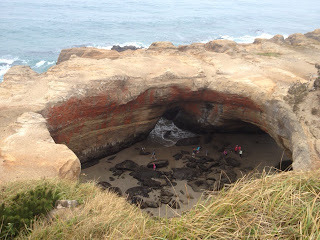drones
∞
Vertical Art
An article in the BBC today reports that Google's CEO Eric Schmidt wants greater regulation of civilian drones.
If I were more cynical I would imagine that the CEO of a search firm would like to limit civilian surveillance so that searches for visual information has to be channeled through a firm that specializes in searches. Fortunately, I am not very cynical.
Instead, I'm feeling quite charitable. Since I also recently read that piloting a drone is boring work, I think we should start new public art projects for the benefit of those doing surveillance. Until recently, we have viewed ourselves horizontally: we care about how we look from the ground, from eye-level. Maybe we should start to care more about how we look from the bird's-eye-level.
We could start with rooftop art, and move up to something like new Nazca Lines. Then all those drone pilots and satellite image analysts could have something more interesting to look at. Art is good for us. Rather than asking "who is watching the watchmen?" let's ask "what are the watchmen watching?" We should give them something worth seeing. I'm going to start by planting flowers.
If I were more cynical I would imagine that the CEO of a search firm would like to limit civilian surveillance so that searches for visual information has to be channeled through a firm that specializes in searches. Fortunately, I am not very cynical.
Instead, I'm feeling quite charitable. Since I also recently read that piloting a drone is boring work, I think we should start new public art projects for the benefit of those doing surveillance. Until recently, we have viewed ourselves horizontally: we care about how we look from the ground, from eye-level. Maybe we should start to care more about how we look from the bird's-eye-level.
We could start with rooftop art, and move up to something like new Nazca Lines. Then all those drone pilots and satellite image analysts could have something more interesting to look at. Art is good for us. Rather than asking "who is watching the watchmen?" let's ask "what are the watchmen watching?" We should give them something worth seeing. I'm going to start by planting flowers.
 |
| Yeah, but what does the roof look like? |
∞
Surveillance and Virtue
The recent news that a no-fly zone was enacted over the site of the Exxon tar sands pipeline spill in Arkansas is in line with the movement in state legislatures to make it a crime to record animal cruelty, even when it is plainly in the public interest to do so. I recently learned it is a crime to film trains carrying nuclear waste, leading me to wonder how I'm supposed to know what any given train is carrying. So taking a family photo while a train passes in the distant background could be a felony? Bizarre.
These are signs that our technology is racing ahead of us. It is easier to create new machines for surveillance than it is to devise a set of rules for ethical use of those machines. The problem of Google Glass is not something altogether new; but the technology sharpens the ethical issues: can I wear it in the locker room at the gym? Can I wear it while talking with the police, or border guards? Can I wear it at a party where co-workers are drinking?
The problem of drones is similar: we have increased our ability to watch others without being watched. As Foucault observed, this is one of the main functions of the prison, a relatively modern invention. The prison is an architectural technology that allows us to watch over our fellow citizens without having them watch us.
The technology is helpful, and it's not patently evil. Information is power, we are told, and everyone likes power. But we should remember the Ring. The Ring of Gyges, or the One Ring of Tolkien, either one will do; in both stories, the ability to observe while unobserved, this ultimate and total camouflage, is too much power. And there is some truth to the dictum that power corrupts.
We are unlikely to slow our own technological progress, so we must devote equal energy and resources to ethical reasoning and to ethical living. Here is where I suggest we start:
First, if you're ashamed of someone seeing what your community is doing, don't do it. It is one thing to protect trademarked secrets and patented methods of production, to enjoy the economic benefits of one's creativity. But if your reason for concealing your business process is that you know I won't buy your product if I know how it's made, you deserve to be exposed because you are manipulating me by concealing information that would affect my decisions.
Second, devote yourself to respecting the privacy and dignity of others. Do this not just for others, but for yourself. We know ourselves to be less than we wish we were; and we know that the social impulse is balanced in our species by a desire to do some things alone, unobserved, or only in intimate company. To expose those things unbidden is to dominate. It is crass, and unkind. If you do not respect others, the technologies of surveillance will become your Ring, and you will destroy your own soul.
At times these two principles will be in conflict with one another - underscoring the importance of continued ethical reasoning. We can't simply fall back on facile rules. We have got to keep thinking, and thinking hard, together. The simple principles, however, can provide a good place to start: do not attempt to dominate or destroy others. Put positively: love one another.
These are signs that our technology is racing ahead of us. It is easier to create new machines for surveillance than it is to devise a set of rules for ethical use of those machines. The problem of Google Glass is not something altogether new; but the technology sharpens the ethical issues: can I wear it in the locker room at the gym? Can I wear it while talking with the police, or border guards? Can I wear it at a party where co-workers are drinking?
The problem of drones is similar: we have increased our ability to watch others without being watched. As Foucault observed, this is one of the main functions of the prison, a relatively modern invention. The prison is an architectural technology that allows us to watch over our fellow citizens without having them watch us.
 |
| Be kind; love one another. |
We are unlikely to slow our own technological progress, so we must devote equal energy and resources to ethical reasoning and to ethical living. Here is where I suggest we start:
First, if you're ashamed of someone seeing what your community is doing, don't do it. It is one thing to protect trademarked secrets and patented methods of production, to enjoy the economic benefits of one's creativity. But if your reason for concealing your business process is that you know I won't buy your product if I know how it's made, you deserve to be exposed because you are manipulating me by concealing information that would affect my decisions.
Second, devote yourself to respecting the privacy and dignity of others. Do this not just for others, but for yourself. We know ourselves to be less than we wish we were; and we know that the social impulse is balanced in our species by a desire to do some things alone, unobserved, or only in intimate company. To expose those things unbidden is to dominate. It is crass, and unkind. If you do not respect others, the technologies of surveillance will become your Ring, and you will destroy your own soul.
At times these two principles will be in conflict with one another - underscoring the importance of continued ethical reasoning. We can't simply fall back on facile rules. We have got to keep thinking, and thinking hard, together. The simple principles, however, can provide a good place to start: do not attempt to dominate or destroy others. Put positively: love one another.
∞
Drones and Virtue
My latest article, on UAV (drone) warfare and virtue ethics, co-authored with John Kaag. It's behind a paywall, but your local library might have a subscription to the Chronicle of Higher Education where you can see it in print (in the Chronicle Review, March 11, 2013) or through their library website.
∞
So, How's The Sabbatical Going?
That's a question I've been hearing a lot this year, and understandably so. Most of my friends and my students have never experienced one. I hope that all of them have a chance to take a sabbatical someday so they can see for themselves what a gift it is. Since so many of my students wonder what I am doing when I'm not on campus, I'm writing this mostly for them. Many of them have (very sweetly!) told me they miss me. Let me assure them: it's mutual. But it has also been very good for me to take this year away from the classroom.
Sabbaticals and Long Service Leaves
By coincidence, a handful of my friends were on some sort of sabbatical last summer. Mostly they work for tech firms that recognize that sabbaticals make for more creative, more productive workers. One of them was enjoying a long service leave that Australian law mandates.
Most jobs in the United States don't offer sabbaticals, but I'm fortunate enough to have one that does. Sometimes my kids chide me for choosing a job with relatively low pay, but self-regulated time is something money can't easily buy. I think I chose my career pretty well.
I say "self-regulated time" because my sabbatical isn't early retirement or a long vacation. My job as a college professor has three basic components: teaching, scholarship, and service. A sabbatical frees me from the first of those components, and from parts of the third. More precisely, it frees me from the daily tasks of teaching and service, but I expect that at the end of this year I will be a better teacher because I've had time to do research and to tear down and rebuild some of my classes. And any college capable of taking the long view knows that faculty who take sabbaticals can render better service over the long haul.
What I've been doing
To the casual observer it probably looks like I've spent a lot of time in coffee shops and airports, and not much else. For the last three years I've devoted myself to teaching and service, giving only a little of my time to scholarship. So when I began my sabbatical my scholarly life felt like deep waters pent up behind a strained dam. Over the last few years I've sketched out five books and seven articles and book chapters. Over my sabbatical I hoped to get maybe one book and a couple of articles done. That may not sound like much, but it's fairly ambitious, given how much time it takes to do the research and to write well.
Since my job description breaks down into the three parts I mentioned above, let me say a few words about what I've been doing this year in each of those areas.
Writing: As for academic writing, so far, I've completed one book (on brook trout), and made significant progress on two others (both on the philosophy of religion). Once I get them done, books four and five are ready to go, too. I've submitted one book chapter for someone else's book, and I'm about to submit another. I've written a few book reviews for popular and scholarly journals, too. Last week I gave a lecture at the College of William and Mary on war and evil. Now I'm preparing that lecture for publication as a journal article. By the time this sabbatical is over, I hope to have at least one book under contract and two more articles sent off for review. I've also done some more popular writing, including a couple of articles on virtue ethics in the Chronicle of Higher Education's Chronicle Review - one on guns and one on the ethics of drones or UAVs. Perhaps most importantly, I've been writing every day. As you can see, I've been trying to write quickly here on this blog a couple of times a week, and I've been writing in a lot of other places as well. Like any other skill, it comes more fluidly with practice.
Teaching: I've also had the pleasure of planning some new classes, including one I plan to co-teach on environmental science and ecology, and a course for alumni I'll teach in Greece this summer with another Classics professor. And I have a whopping stack of books I've wanted to read that I've been devouring hungrily. When you're the professor, it's also good to be the student as often as possible.
Service: Even though I'm away from campus, my heart is still there. Everything I do as a professor winds up leaning back towards the classroom, which means towards my students. Nothing I do matters more than the people I do it with and for, I think. I must have written sixty letters of recommendation for students this year (which is more time-intensive than one might think). Sabbatical has also given me the chance to help some colleagues here and at other universities. I've been helping half a dozen friends who teach Classics, Philosophy, and Biology at other universities by reading and commenting on drafts of their essays and books. And I've done a lot of "double-blind" reviewing for six or seven academic publishers who want advice on whether to publish certain books or journal articles. Best of all has been time to collaborate with colleagues in far-off places, corresponding with professors and graduate students around the world about philosophy, ecology, Scriptural Reasoning, Henry Bugbee, Charles Peirce, C.S. Lewis, and other matters close to my heart. I list this as "service" but I could just as well call it "ways I've learned from other people far away."
But Have You Taken Some Time To Rest?
Yes. The word "sabbatical" has its roots in a Hebrew word, shabbath, meaning "to rest." It would be a shame not to use the time to get some rest. Last summer I spent two weeks in a writing retreat sponsored by Oregon State at their Shotpouch Creek Cabin with my friend and co-author Matthew Dickerson. We were working, but what restful work it can be to live, think, and write quietly with a friend. We spent half of each day writing, and the other half talking, hiking, fishing, wading in the ocean. We borrowed some hymnals from an Episcopal church in Eugene and spent part of each evening singing as the sun declined behind the coastal range.
On my way to Oregon, I drove my sons to the coast last summer to look at colleges, to go whale-watching, and to watch some professional soccer matches. When I got home to Sioux Falls, I joined a gym and I became my son's rec league soccer coach. This is his last year of living at home with us, and I can't tell you how grateful I am to have this time with him before adulthood takes him off on the next leg of his life's journey. Despite all the work, and travel, and writing, I've had more time with my wife and my kids, and more time for self-care. I feel much healthier and fitter now than I did a year ago. I have a feeling my family is better off for that, too.
I wish everyone, regardless of their line of work, could have an experience like this every few years. It might remind us all what matters. It's expensive, I know. I took a hefty pay cut from an already modest salary to have this year off, and thankfully our savings have been enough to get us through. (And writing and lecturing makes me a few extra ducats to send to my daughter in college from time to time or to spend on my boys at home.)
No doubt some people will read this and wonder why my college is willing to pay me anything at all when I'm not showing up to work. The answer is that some colleges still take the long view. You have to put aside your monthly planner and get a calendar that measures time and value "not by the times but by the eternities" (pace Thoreau), that looks down the years the way a carpenter holds a plank to her eye and looks down the full length of the board rather than seeing only the grain of what is nearest. Money has been spent on me this year by people who thought it worthwhile to let me stretch from my cramped pose. They have let me drink from distant streams so that I can come back nourished not just by the Big Sioux and the Missouri but by the waters of Oregon and New York and Virginia - and in some sense by the Hippocrene itself.
So that's what I've been doing. I'm sorry I haven't been around campus much. In the long run, what I've been doing should make my return to campus a very good one indeed. I can't wait to tell you more about what I've learned this year once I return.
Sabbaticals and Long Service Leaves
 |
| Sabbaticals can be seasons of letting dry husks bear new life. |
Most jobs in the United States don't offer sabbaticals, but I'm fortunate enough to have one that does. Sometimes my kids chide me for choosing a job with relatively low pay, but self-regulated time is something money can't easily buy. I think I chose my career pretty well.
I say "self-regulated time" because my sabbatical isn't early retirement or a long vacation. My job as a college professor has three basic components: teaching, scholarship, and service. A sabbatical frees me from the first of those components, and from parts of the third. More precisely, it frees me from the daily tasks of teaching and service, but I expect that at the end of this year I will be a better teacher because I've had time to do research and to tear down and rebuild some of my classes. And any college capable of taking the long view knows that faculty who take sabbaticals can render better service over the long haul.
What I've been doing
To the casual observer it probably looks like I've spent a lot of time in coffee shops and airports, and not much else. For the last three years I've devoted myself to teaching and service, giving only a little of my time to scholarship. So when I began my sabbatical my scholarly life felt like deep waters pent up behind a strained dam. Over the last few years I've sketched out five books and seven articles and book chapters. Over my sabbatical I hoped to get maybe one book and a couple of articles done. That may not sound like much, but it's fairly ambitious, given how much time it takes to do the research and to write well.
Since my job description breaks down into the three parts I mentioned above, let me say a few words about what I've been doing this year in each of those areas.
Writing: As for academic writing, so far, I've completed one book (on brook trout), and made significant progress on two others (both on the philosophy of religion). Once I get them done, books four and five are ready to go, too. I've submitted one book chapter for someone else's book, and I'm about to submit another. I've written a few book reviews for popular and scholarly journals, too. Last week I gave a lecture at the College of William and Mary on war and evil. Now I'm preparing that lecture for publication as a journal article. By the time this sabbatical is over, I hope to have at least one book under contract and two more articles sent off for review. I've also done some more popular writing, including a couple of articles on virtue ethics in the Chronicle of Higher Education's Chronicle Review - one on guns and one on the ethics of drones or UAVs. Perhaps most importantly, I've been writing every day. As you can see, I've been trying to write quickly here on this blog a couple of times a week, and I've been writing in a lot of other places as well. Like any other skill, it comes more fluidly with practice.
 | ||
| Snail shells grow by slow accumulation, as habits do. |
Service: Even though I'm away from campus, my heart is still there. Everything I do as a professor winds up leaning back towards the classroom, which means towards my students. Nothing I do matters more than the people I do it with and for, I think. I must have written sixty letters of recommendation for students this year (which is more time-intensive than one might think). Sabbatical has also given me the chance to help some colleagues here and at other universities. I've been helping half a dozen friends who teach Classics, Philosophy, and Biology at other universities by reading and commenting on drafts of their essays and books. And I've done a lot of "double-blind" reviewing for six or seven academic publishers who want advice on whether to publish certain books or journal articles. Best of all has been time to collaborate with colleagues in far-off places, corresponding with professors and graduate students around the world about philosophy, ecology, Scriptural Reasoning, Henry Bugbee, Charles Peirce, C.S. Lewis, and other matters close to my heart. I list this as "service" but I could just as well call it "ways I've learned from other people far away."
 |
| The license plate on the rental car I had at a recent conference. |
Yes. The word "sabbatical" has its roots in a Hebrew word, shabbath, meaning "to rest." It would be a shame not to use the time to get some rest. Last summer I spent two weeks in a writing retreat sponsored by Oregon State at their Shotpouch Creek Cabin with my friend and co-author Matthew Dickerson. We were working, but what restful work it can be to live, think, and write quietly with a friend. We spent half of each day writing, and the other half talking, hiking, fishing, wading in the ocean. We borrowed some hymnals from an Episcopal church in Eugene and spent part of each evening singing as the sun declined behind the coastal range.
On my way to Oregon, I drove my sons to the coast last summer to look at colleges, to go whale-watching, and to watch some professional soccer matches. When I got home to Sioux Falls, I joined a gym and I became my son's rec league soccer coach. This is his last year of living at home with us, and I can't tell you how grateful I am to have this time with him before adulthood takes him off on the next leg of his life's journey. Despite all the work, and travel, and writing, I've had more time with my wife and my kids, and more time for self-care. I feel much healthier and fitter now than I did a year ago. I have a feeling my family is better off for that, too.
I wish everyone, regardless of their line of work, could have an experience like this every few years. It might remind us all what matters. It's expensive, I know. I took a hefty pay cut from an already modest salary to have this year off, and thankfully our savings have been enough to get us through. (And writing and lecturing makes me a few extra ducats to send to my daughter in college from time to time or to spend on my boys at home.)
No doubt some people will read this and wonder why my college is willing to pay me anything at all when I'm not showing up to work. The answer is that some colleges still take the long view. You have to put aside your monthly planner and get a calendar that measures time and value "not by the times but by the eternities" (pace Thoreau), that looks down the years the way a carpenter holds a plank to her eye and looks down the full length of the board rather than seeing only the grain of what is nearest. Money has been spent on me this year by people who thought it worthwhile to let me stretch from my cramped pose. They have let me drink from distant streams so that I can come back nourished not just by the Big Sioux and the Missouri but by the waters of Oregon and New York and Virginia - and in some sense by the Hippocrene itself.
So that's what I've been doing. I'm sorry I haven't been around campus much. In the long run, what I've been doing should make my return to campus a very good one indeed. I can't wait to tell you more about what I've learned this year once I return.
∞
The Other Drones Problem: The Tragedy of the Unexplored Commons
John Brennan's nomination hearings brought about a slew of articles about drone warfare. On the one side, people like William Saletan in Slate argue that drones (or UAVs) minimize civilian casualties while safeguarding American soldiers. Others, like John Kaag and Sarah Kreps in the New York Times remind us that the technological advances come with moral hazards we might not have anticipated.
But there is another ethical issue related to UAVs that doesn't have to do with war. Or, if it does, it has to do with a "war against crude nature."
The technologies we invent in wartime don't go away when the conflicts end. Already, UAVs are being deployed for a number of other uses, and we can expect their uses to increase. I'm no flag-waving Luddite here. The things we invent can be put to diverse uses, some helpful and some harmful. But if we care about promoting the helpful uses, we'll need to be intentional about that.
UAVs are a brilliant platform for remote-sensing technologies. They can cover a lot of ground and stay aloft for a long time. Drone aircraft are adding to our ability to conquer unknown spaces. If you've used Google Maps to explore places you've never been before, you know what an aesthetic boost and letdown this can be: it's a boost to see what you've never seen, and at the same time, we find ourselves sharing Aldo Leopold's lament in "The River of the Mother of God": the unknown places are being replaced by maps, and our deep genetic need to explore runs up against the feeling that everything has already been seen. When I lived in Madrid, I tried to make places like the Retiro park my places of natural exploration and solitude, but I couldn't escape the feeling that I was treading where millions of others had already trod.
But that is a small worry compared to the bigger issue of the world's oceans and natural resources. For the whole history of our species we have been able to act as though the world contained unlimited resources. Our species is an explorer species. We have "restless genes," as a recent National Geographic article put it.
Gone is the age of Hemingway's Old Man and the Sea. We no longer take to the seas in small craft and fish commercially with handlines. The last century has pushed fishing fleets thousands of miles from the places where they will ultimately bring their catch to market. We can no longer treat the oceans as limitless resources; we are fishing them out, and some species may collapse under the pressure and never come back.
In the race to find the last remaining schools of fish, we are beginning to use UAVs to scour the seas. Where fishermen once looked for birds circling schools of sardines, robot airplanes now skim the waves and do the searching for us.
Ethicists and game theorists refer to this as the "tragedy of the commons": if we each only take resources in proportion to what we can use, the resources can be shared indefinitely. But if some of us take more than our share of the "commons" or the resources, they will have a short-term gain at the expense of the long-term gain of everyone.
The STEM fields (Science, Technology, Engineering, Mathematics) are brilliant, and wonderful. New technologies give us new access to the world, and they can save and improve lives. But they lack the ability to regulate themselves, which is why as the STEM fields grow, we need the humanities (and their critiques of technology) to grow with them. If we are not careful, new technologies can also permit us to do great harm to our common world - and to ourselves. If fish seems cheap and plentiful, stop to ask where it came from, and whether that source is sustainable. If it's not, vote with your dollars and eat something else.
But there is another ethical issue related to UAVs that doesn't have to do with war. Or, if it does, it has to do with a "war against crude nature."
The technologies we invent in wartime don't go away when the conflicts end. Already, UAVs are being deployed for a number of other uses, and we can expect their uses to increase. I'm no flag-waving Luddite here. The things we invent can be put to diverse uses, some helpful and some harmful. But if we care about promoting the helpful uses, we'll need to be intentional about that.
UAVs are a brilliant platform for remote-sensing technologies. They can cover a lot of ground and stay aloft for a long time. Drone aircraft are adding to our ability to conquer unknown spaces. If you've used Google Maps to explore places you've never been before, you know what an aesthetic boost and letdown this can be: it's a boost to see what you've never seen, and at the same time, we find ourselves sharing Aldo Leopold's lament in "The River of the Mother of God": the unknown places are being replaced by maps, and our deep genetic need to explore runs up against the feeling that everything has already been seen. When I lived in Madrid, I tried to make places like the Retiro park my places of natural exploration and solitude, but I couldn't escape the feeling that I was treading where millions of others had already trod.
 |
| We have a deep need for exploration, and so we need places that feel unexplored. |
But that is a small worry compared to the bigger issue of the world's oceans and natural resources. For the whole history of our species we have been able to act as though the world contained unlimited resources. Our species is an explorer species. We have "restless genes," as a recent National Geographic article put it.
Gone is the age of Hemingway's Old Man and the Sea. We no longer take to the seas in small craft and fish commercially with handlines. The last century has pushed fishing fleets thousands of miles from the places where they will ultimately bring their catch to market. We can no longer treat the oceans as limitless resources; we are fishing them out, and some species may collapse under the pressure and never come back.
In the race to find the last remaining schools of fish, we are beginning to use UAVs to scour the seas. Where fishermen once looked for birds circling schools of sardines, robot airplanes now skim the waves and do the searching for us.
 |
| At the crossroads |
Ethicists and game theorists refer to this as the "tragedy of the commons": if we each only take resources in proportion to what we can use, the resources can be shared indefinitely. But if some of us take more than our share of the "commons" or the resources, they will have a short-term gain at the expense of the long-term gain of everyone.
The STEM fields (Science, Technology, Engineering, Mathematics) are brilliant, and wonderful. New technologies give us new access to the world, and they can save and improve lives. But they lack the ability to regulate themselves, which is why as the STEM fields grow, we need the humanities (and their critiques of technology) to grow with them. If we are not careful, new technologies can also permit us to do great harm to our common world - and to ourselves. If fish seems cheap and plentiful, stop to ask where it came from, and whether that source is sustainable. If it's not, vote with your dollars and eat something else.
*****
Here is one of my favorite sources of fish news.